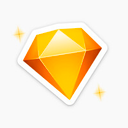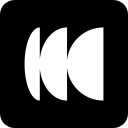Sketch vs Optimal Workshop (2025 Comparison)
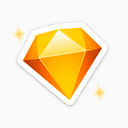
Sketch offers a powerful design platform with comprehensive vector editing and prototyping capabilities. Its wide range of integrations makes it a versatile choice for design teams.
- Comprehensive vector editing tools.
- Robust prototyping capabilities.
- Wide range of integrations.
- Limited usability testing features.
- Requires a learning curve for beginners.
Free plan?
NoStarting price
$10 per month per user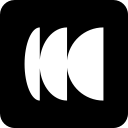
Optimal Workshop provides an excellent suite of usability testing tools with a user-friendly interface. Its card sorting and tree testing features are invaluable for UX researchers.
- Excellent usability testing tools.
- User-friendly interface.
- Comprehensive card sorting features.
- Limited design capabilities.
- Higher cost for advanced features.
Free plan?
NoStarting price
$107 per monthWhat is Sketch?
Sketch is a powerful design tool primarily used for creating user interfaces and user experiences. It offers a wide range of features that help designers bring their ideas to life, from vector editing to prototyping. Sketch is particularly popular among UI/UX designers due to its intuitive interface and robust plugin ecosystem, which allows for extensive customization. Whether you're working on a mobile app or a website, Sketch provides the tools you need to create stunning designs efficiently.
What is Optimal Workshop?
Optimal Workshop is a suite of usability testing tools designed to help you understand how users interact with your website or app. It offers a range of features, including tree testing, card sorting, and first-click testing, to gather insights into user behavior. This software is invaluable for UX researchers and designers who want to make data-driven decisions to improve user experience. By using Optimal Workshop, you can identify usability issues early in the design process, ensuring a smoother and more intuitive user journey.
Pros and Cons of Sketch vs Optimal Workshop
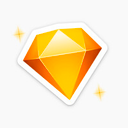
Pros & Cons of Sketch
- Sketch offers a wide array of vector editing tools that allow designers to create detailed and precise designs. This makes it an excellent choice for UI/UX designers who need to work with intricate graphics.
- With Sketch, you can create interactive prototypes that help visualize the user experience. This feature is particularly useful for designers who want to test and iterate on their designs before finalizing them.
- Sketch integrates with numerous other design and productivity tools, enhancing its functionality and making it easier to incorporate into existing workflows. This flexibility is a significant advantage for design teams.
- While Sketch excels in design, it lacks comprehensive usability testing tools. Designers looking to conduct usability tests will need to rely on additional software, which can be inconvenient.
- New users may find Sketch's interface and features overwhelming at first. It takes time to become proficient, which can be a barrier for those new to design software.

Pros & Cons of Optimal Workshop
- Optimal Workshop provides a comprehensive suite of usability testing tools that help UX researchers gather valuable insights into user behavior. This makes it an essential tool for improving user experience.
- The interface of Optimal Workshop is intuitive and easy to navigate, making it accessible for users of all skill levels. This ease of use is a significant advantage for teams conducting usability tests.
- Optimal Workshop excels in card sorting, allowing teams to understand how users categorize information. This feature is crucial for improving information architecture and enhancing user experience.
- While Optimal Workshop is excellent for usability testing, it lacks the design capabilities of tools like Sketch. Teams looking for a comprehensive design solution will need to use additional software.
- The advanced features of Optimal Workshop come at a higher cost, which may be a consideration for teams with limited budgets. It's important to weigh the benefits against the cost when deciding.
Sketch vs Optimal Workshop: At A Glance
Value to Price
When it comes to value for money, Sketch offers a comprehensive set of design tools at a competitive price, making it a favorite among designers. Optimal Workshop, on the other hand, provides a suite of usability testing tools that are invaluable for UX researchers. If you're looking for a cost-effective design tool, Sketch might be your best bet, but for usability testing, Optimal Workshop offers great value.
Ease of Use
Sketch is known for its intuitive interface, making it easy for designers to get started quickly. Optimal Workshop also offers a user-friendly experience, with straightforward tools for conducting usability tests. If ease of use is your priority, both tools excel, but Optimal Workshop might have a slight edge for beginners in usability testing.
Functionality
Sketch provides a robust set of features for UI/UX design, including vector editing and prototyping. Optimal Workshop excels in usability testing, offering tools like tree testing and card sorting. If you need a tool with extensive design capabilities, Sketch is the way to go. For usability testing, Optimal Workshop is unmatched.
Scalability
Sketch is scalable for design teams of all sizes, with features that support collaboration and version control. Optimal Workshop also scales well, accommodating large teams conducting extensive usability tests. If scalability is crucial, both tools perform well, but Sketch might be more suitable for larger design teams.
Integrations
Sketch offers a wide range of integrations with other design tools and platforms, enhancing its functionality. Optimal Workshop integrates with popular UX tools, making it easy to incorporate into your workflow. If integrations are important, Sketch provides more options, but Optimal Workshop covers essential UX tools.
Customer Support
Sketch offers reliable customer support, with resources like tutorials and a community forum. Optimal Workshop provides excellent support, with detailed documentation and responsive customer service. If customer support is a deciding factor, Optimal Workshop might have the upper hand.
Security
Both Sketch and Optimal Workshop prioritize security, ensuring your data is protected. Sketch offers secure cloud storage, while Optimal Workshop provides secure data handling for usability tests. If security is a concern, both tools are reliable, but Optimal Workshop's focus on data security might be more reassuring.
Overall Rating
Overall, both Sketch and Optimal Workshop are excellent tools in their respective domains. Sketch is ideal for UI/UX design, while Optimal Workshop excels in usability testing. Your choice should depend on whether you need a design tool or a usability testing suite.
Sketch vs Optimal Workshop: A Detailed Breakdown of Key Features
Vector Editing
Sketch offers a comprehensive vector editing toolset, allowing you to create intricate designs with precision. Its intuitive interface makes it easy to manipulate shapes and paths, which is a boon for designers. Optimal Workshop, however, is not focused on design but rather on usability testing, so its vector editing capabilities are limited. If vector editing is a priority, Sketch is the clear winner.
Prototyping
With Sketch, you can create interactive prototypes that bring your designs to life. Its prototyping features are robust, allowing for seamless transitions and animations. Optimal Workshop, while excellent for usability testing, does not offer the same level of prototyping capabilities. If you're looking to prototype your designs, Sketch is the better choice.
Collaboration
Sketch provides collaboration features that enable teams to work together efficiently, with options for sharing and commenting on designs. Optimal Workshop also supports collaboration, particularly in the context of usability testing, where team members can analyze results together. If collaboration is key, both tools offer valuable features, but Sketch might be more suited for design teams.
Usability Testing
Optimal Workshop shines in usability testing, offering a suite of tools to gather insights into user behavior. From tree testing to card sorting, it provides comprehensive options for understanding user interactions. Sketch, while excellent for design, does not focus on usability testing. If usability testing is your main goal, Optimal Workshop is the superior choice.
Card Sorting
Card sorting is a feature where Optimal Workshop excels, allowing you to understand how users categorize information. This is crucial for improving information architecture. Sketch does not offer card sorting, as it is primarily a design tool. If card sorting is essential, Optimal Workshop is the tool to choose.
Tree Testing
Tree testing is another area where Optimal Workshop stands out, helping you evaluate the findability of topics within your website. Sketch does not provide tree testing capabilities, focusing instead on design. If tree testing is a requirement, Optimal Workshop is the better option.
Pricing Comparison of Sketch and Optimal Workshop
We’ve compiled the pricing tables and highlighted the key features of both Sketch and Optimal Workshop to aid in your decision-making process. Let’s explore what each platform has to offer.
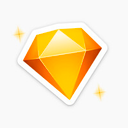
Sketch Pricing Plans
- Collaborate in real-time with team members seamlessly.
- Access unlimited free Viewers for easy sharing.
- Inspect designs, test prototypes, and handoff to developers.
- Preview designs on iPhone or iPad for mobile testing.
- Work privately offline with local document saving.
- Keep your license forever with one-time purchase.
- Receive one year of updates for the Mac app.
- Excludes collaborative features and web app access.
- Unlimited online storage for all design files.
- Invoice-based billing for streamlined financial processes.
- Powerful permissions directory for team management.
- Priority support and dedicated customer success manager.
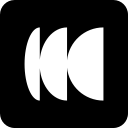
Optimal Workshop Pricing Plans
- Includes tree testing for evaluating content findability.
- Card sorting to organize content with user expectations.
- Access to Optimal Academy for user research training.
- No credit card required for sign-up, easy to start.
- Prototype testing for early and frequent design testing.
- Surveys for quick answers with simple surveys.
- Qualitative insights for deep analysis of user feedback.
- Custom pricing tailored to team needs and size.
- Dedicated Customer Success Manager for optimal usage.
- Multiple workspaces for separate teams or clients.
- Private projects with restricted access for confidentiality.
- Single Sign-On for secure and easy access.
Our Rating Methodology
We thoroughly evaluate each design and usability testing tool, focusing on key aspects like functionality, ease of use, and scalability. By analyzing user feedback and conducting hands-on testing, we ensure our recommendations are reliable. Each factor is weighted to provide an accurate final rating, helping you choose the best tool for your needs.
Sketch or Optimal Workshop: Which One Matches Your Business Needs?
Choose Sketch If You Need ...
- Advanced design capabilities
If you are a designer looking for a tool with advanced vector editing and prototyping capabilities, Sketch is the ideal choice. Its comprehensive design features make it perfect for creating detailed and interactive designs.
- Wide range of integrations
If you need a design tool that integrates seamlessly with other platforms and tools, Sketch offers a wide range of integrations. This flexibility makes it easy to incorporate into your existing workflow.
Choose Optimal Workshop If You Need ...
- Comprehensive usability testing
If you are a UX researcher looking for a tool with comprehensive usability testing features, Optimal Workshop is the best choice. Its suite of testing tools provides valuable insights into user behavior.
- User-friendly interface
If you need a tool that is easy to use and navigate, Optimal Workshop offers a user-friendly interface. This makes it accessible for users of all skill levels, ensuring a smooth testing process.
Frequently Asked Questions
 Which tool is better for UI/UX design?
Which tool is better for UI/UX design?
 Which tool is better for usability testing?
Which tool is better for usability testing?
 How do the integrations compare between the two tools?
How do the integrations compare between the two tools?
 Which tool offers better customer support?
Which tool offers better customer support?
 How do the security features compare?
How do the security features compare?
 Which tool is more cost-effective?
Which tool is more cost-effective?

Anastasia Belyh
Anastasia Belyh is a senior tech writer with over 15 years of experience in marketing, sales, and business software. Having worked in investment banking, management consulting, and founded multiple companies, her in-depth knowledge and hands-on expertise make her software reviews authoritative, trustworthy, and highly practical for business decision-makers.

